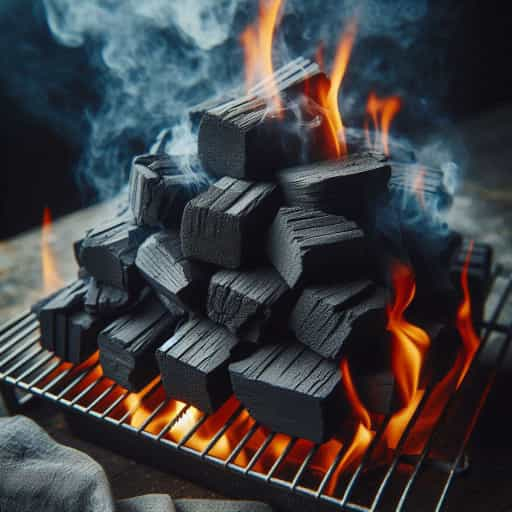Finding the right barbecue grill starts by understanding what kind of griller you are. Are you a weekend warrior or a casual weeknight chef? The type of cooking you’ll be doing can heavily influence what grill suits you best.
Charcoal grills have that classic smoky flavor folks rave about. They are usually affordable and perfect for those who enjoy the authentic BBQ experience. On the flip side, gas grills are like the sprinters of the grilling world. They’re quick, practical, and clean, making them ideal for speedy meals without the wait.
Electric grills come in handy if you’re in an apartment or somewhere with strict regulations about open flames. They’re simple to use but might not add that deep BBQ flavor many crave. Pellet grills, combining convenience and flavor, are great if you like experimenting. A bit of an investment upfront, these grills offer precision and a unique taste profile, blending wood-fired flavor with easy control.
Think about where and how often you’ll grill. Are you planning backyard cookouts every weekend, or is it just a few burgers on a random Friday evening? Knowing this guides your choice, ensuring you’re not left with a massive grill gathering dust. Also, where you grill matters more than you’d think. Some grills are better suited for big backyard spaces, while others can be easily packed for park adventures.
Finally, let’s talk numbers. Grills range widely in price, so it’s about balancing what you want with what you can afford. A spendy grill might have features like Wi-Fi connectivity and built-in thermometers, but ask yourself if you’d genuinely gain from those extras. Investing wisely means considering both the upfront cost and how much it’ll save or cost you in the long run, like in terms of fuel choice and maintenance.
Exploring Grill Features and Functions
Choosing a grill is like building your dream kitchen outdoors. The features and functions are where it really starts to get interesting. It’s not just about sizzle and sear—it’s about how those elements fit your lifestyle.
Consider the grill’s size and capacity. Planning on hosting epic neighborhood BBQs, or feeding just a small family? Bigger isn’t always better; sometimes, a compact grill with high efficiency is what you need. Evaluate how much space you have, both on your patio and on the grill surface.
Heat distribution and control can be the difference between a perfect steak and a charred disaster. Look into the BTUs (British Thermal Units) which indicate the heat output. More BTUs mean more power, but even heat distribution and usability can often be more valuable than raw power.
Some folks swear by additional features that enhance versatility. Things like rotisseries, side burners, or even infrared technology can tailor your grill to specific cooking styles. Have you considered how you’d use them—or if you would at all? Sometimes these features can enhance cooking, but they can also complicate cleaning and maintenance.
Fuel costs and availability are another aspect not to overlook.https://en.wikipedia.org/wiki/Charcoal might be cheaper initially but adds up over time. Propane is super convenient, though prices fluctuate. Make sure you pick something easy on your budget—not just now, but as you continue grilling in the future.

Material and Build Quality: Ensuring Longevity
The materials used in a grill can tell you a lot about how long it’ll last and how easy it’ll be to use. Stainless steel is often a top pick due to its durability and resistance to rust. However, not all stainless is equal. Look for high-quality types that withstand weather changes.
Cast iron grills are champions when it comes to heat retention, giving a fantastic sear on meats. The downside? They require regular seasoning to prevent rust. Porcelain and aluminum grills are light and handle the elements pretty well but might not offer the longevity of other materials.
Consider the grill’s overall durability. If you live somewhere with harsh rain or snow, weather-resistant features like high-grade covers and protective coatings can be crucial. Checking if a grill has undergone rigorous testing for elements and corrosion can save a lot of future headaches.
Taking note of warranties and user reviews is like having a crystal ball for how reliable a grill is. A solid warranty shows confidence from the manufacturer in their product. Real-world reviews offer the unfiltered truth about performance and any pitfalls you’ll want to avoid.
Keeping that grill looking and working like new is less about luck and more about smart maintenance. Cleaning tips can include simple hacks like oiling grates before cooking or using a grill brush on cooled surfaces. Developing a consistent cleaning routine can make a world of difference in extending your grill’s lifespan.
Making an Informed Purchase Decision
Once you’ve got your eye on a few options, digging into customer reviews is key. These insights from fellow grill-lovers often reveal the unmentioned pros and cons. Testimonials can tell you about ease of use, unexpected benefits, or hidden drawbacks that spec sheets don’t show.
Matching must-have features to your budget is like solving a puzzle. There’s a grill for every budget, but sorting wants from needs can be tricky. Decide what features you truly can’t live without—like high heat or an attached smoker—and which ones are just nice to have.
The purchasing journey doesn’t end at checkout. Knowing your retailer’s return policy can be a game-changer if you find that the new grill doesn’t fit your expectations or space. Stores with generous return terms or satisfaction guarantees can offer peace of mind in case things go sideways.
Factor in key lifestyle elements when choosing your grill, like how often you’ll use it and the types of meals you want to create. If you’re entertaining often or simply enjoy long grilling sessions, invest in a sturdy, versatile grill that supports your culinary escapades. This way, you ensure a match that not only meets but enhances your lifestyle.
**This post contains affiliate links. If you make a purchase through these links, I may earn a commission at no extra cost to you.**
Check out this entry level Weber gas barbecue https://amzn.to/4m1FJIj. This Kamado Joe https://amzn.to/479OYkT. Or this Ninja Smoker https://amzn.to/47blx1N.
